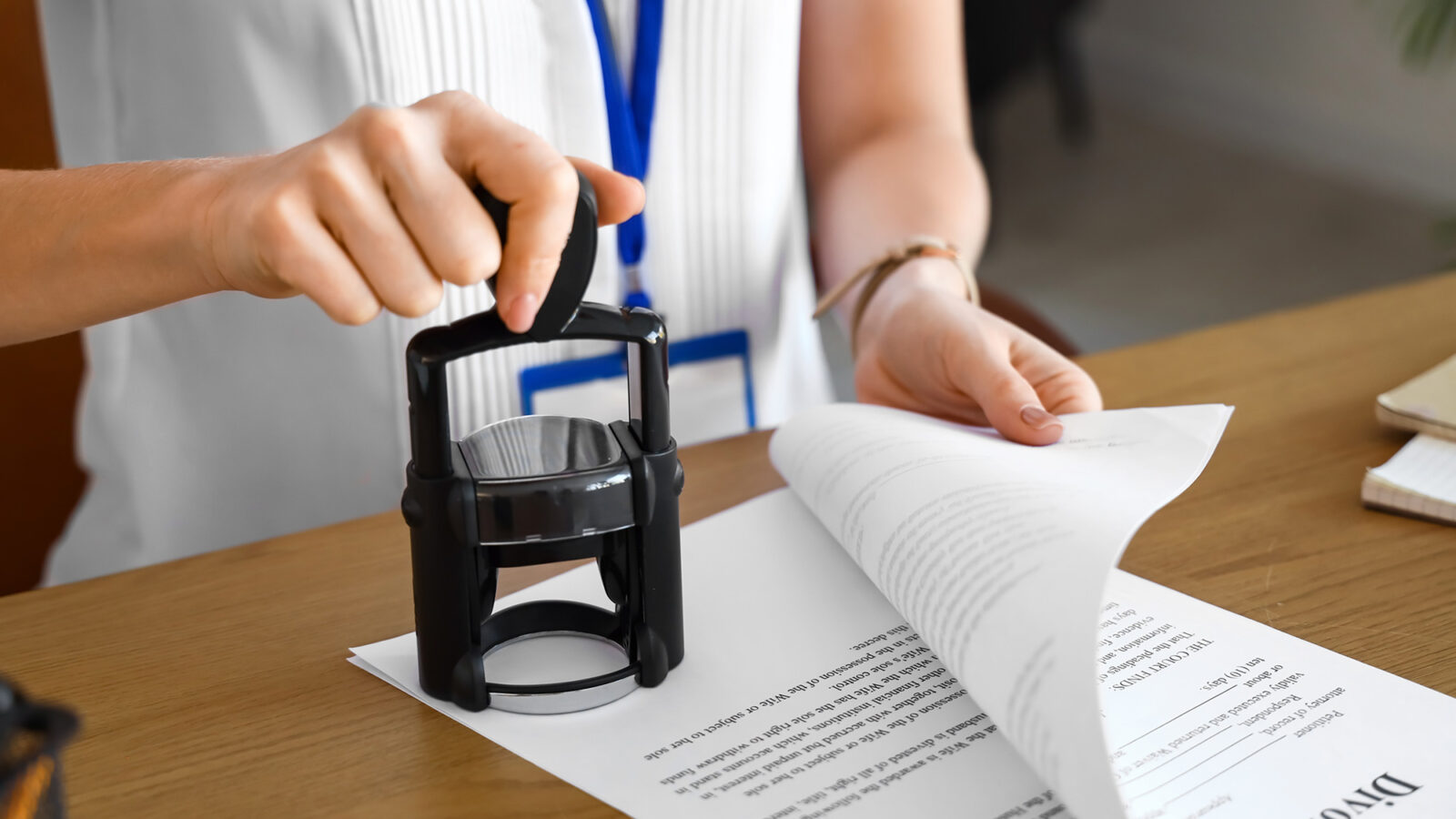
Notary Services
At your local Central Pennsylvania AAA office, you’ll find certified notary publics ready to notarize your documents and prevent fraud during important transactions.
When Should You Notarize a Document?
Documents typically require notarization to verify authenticity and prevent fraud. Certain documents involving health, legal or financial matters commonly require notarization to ensure validity or enforceability. The need for notarization depends on the jurisdiction’s specific laws and regulations and the nature of the document.
Notarization is typically required when presenting the document to government agencies, courts or other official entities. Notaries provide added assurance that the document is accurate and properly executed.
One of the primary responsibilities of a notary is verifying the identities of the signer and the witnesses. Notaries usually verify identity by checking state-issued identification cards or driver’s licenses. In addition, the notary will ensure the signer consents to the terms willingly and knowingly, plus confirm that the signatures are in the correct locations.
Notarization ensures that someone doesn’t sign a document under duress and that the signatures are authentic and belong to the stated individuals.
Types of Documents AAA Can Notarize
- Affidavits
- Car title transfers
- Contracts
- Health care directives
- Permission slips for minors
- Property deeds
- Powers of attorney (POA)
- Trusts
- Wills
We ask that members bring bring documents in their entirety in addition to their own personal witnesses familiar with the document for health care directives, durable POAs and trusts – not just for wills. Personal witnesses provide added verification and credibility if the document is contested in court. Please contact your local AAA Central Penn branch before stopping in so we can ensure you bring all the necessary items to expedite your visit.
Items AAA Notaries in Central Pennsylvania Cannot Notarize
Like in many other jurisdictions, notaries in Pennsylvania are limited in the types of documents they can notarize because they have specific legal responsibilities and obligations. The limitations ensure the integrity of the notarization process by preventing potential conflicts of interest or misuse of power. Notaries are also not permitted to provide legal advice or perform certain specialized tasks that require a specific professional license.
Some examples of the items we can’t notarize are:
- I-9 forms
- Mortgages
- Incomplete documents without the proper signatures
- Birth, death or marriage certificates
- Bank security transfers
What’s Required to Notarize a Document?
Before visiting a AAA notary in Central Pennsylvania to notarize your personal documents, make sure you understand what you need. Also, all parties must be present and have the proper ID. Parties cannot sign documents in advance.
Most of the time, your ID must be government-issued with an official photo, a physical description of you and your signature. Examples include your current and unexpired:
- Driver’s license
- State-issued ID card
- Military card
- U.S. passport
If the document has many pages, be sure to mark the pages or sections that must be notarized beforehand to ensure a quick and seamless process.
You should also understand the scope of your document and the type of notarization required. Notaries are not licensed attorneys and cannot provide legal advice.
Certified Copies
If you need a copy of an official document for legal purposes, a AAA Central Penn notary can typically help. Our notaries can verify the duplicate is an accurate transcription or reproduction of the original.
When requesting a certified copy from a Pennsylvania notary, simply bring the original document with you. The notary will create a photocopy and certify it. Pennsylvania is only one of several states that allow notaries to create copy certifications.
Examples of the document types that notaries can copy include:
- Driver’s licenses
- Social security cards
- Vehicle titles
- Diplomas
- Leases
- Contracts
- Bills of sale
- Medical records
Please note that some documents, like birth certificates and death certificates, cannot be copied under Pennsylvania state law. This information will be clearly stated in the document. These documents will require you to order a new one from the state department if a certified copy is required. If you need help determining whether a specific document can be notarized, the knowledgeable staff at AAA Central Penn can guide you.

